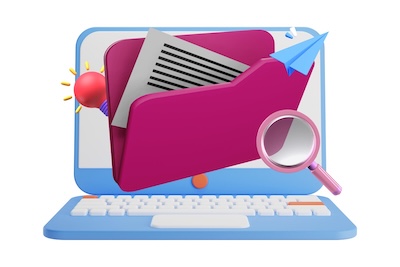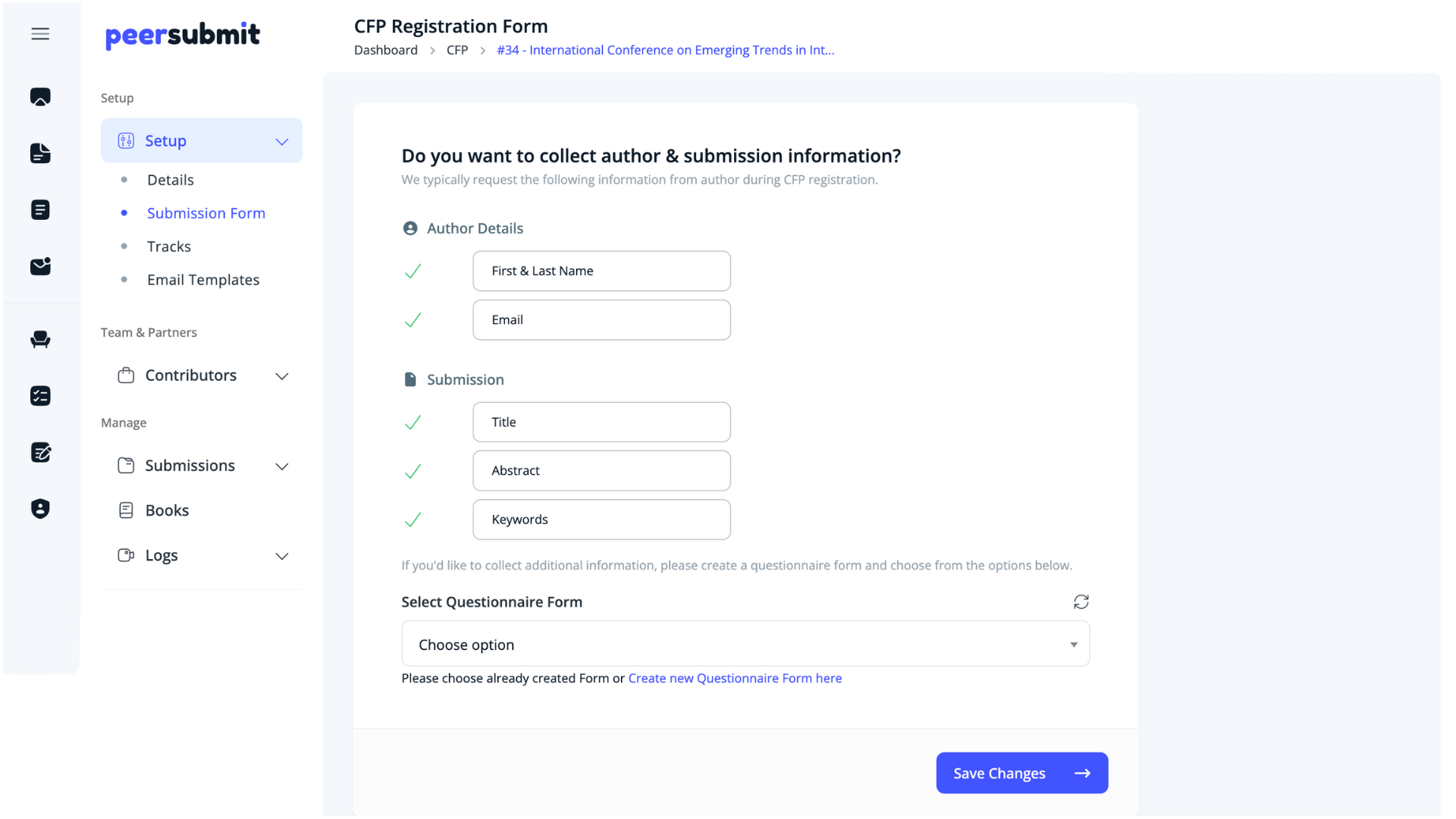Abstract Management Made Easy: Best Practices for Researchers and Organizers
Paige Watson
Published on 20 July 2025Managing conference abstracts can be one of the most challenging parts of organizing an academic event. From collecting submissions and reviewing content to ensuring fairness and keeping communication smooth, the process is often time-consuming, error-prone, and stressful for organizers and researchers alike. At PeerSubmit, we’ve seen these pain points firsthand and built solutions to address them. This post shares best practices to make abstract management easier, more efficient, and more rewarding for everyone involved.

Why Abstract Management Matters
Abstracts are more than summaries. They are the gateway to research visibility, the first impression of scholarly work, and the building blocks of a conference program. Poorly managed submissions can lead to delays, reviewer fatigue, and even reputational harm for a conference or university.
On the flip side, streamlined abstract management builds trust, encourages participation, and raises the overall quality of academic exchange.
Common Challenges Organizers Face
Before diving into best practices, it’s worth highlighting the challenges we hear most often from universities and professional societies:
- Overwhelming volume of submissions: Hundreds or even thousands of abstracts pour in, each requiring careful tracking.
- Reviewer coordination: Matching abstracts with qualified reviewers can become chaotic without proper tools.
- Time pressure: Deadlines for acceptance, program scheduling, and publication stack up quickly.
- Communication gaps: Authors often feel left in the dark about the status of their work.
- Technical issues: Legacy systems or spreadsheets can’t handle the complexity of modern conferences.

Best Practices for Abstract Management
-
Use a Centralized Submission Platform
Forget juggling email attachments and spreadsheets. A centralized platform like PeerSubmit ensures every submission is stored securely, tracked in real-time, and easy to retrieve. Researchers benefit from a straightforward interface, while organizers gain full visibility into the process. -
Define Clear Submission Guidelines
Authors need clarity. Set word limits, formatting rules, and eligibility criteria upfront. Provide examples of strong abstracts and FAQs. At PeerSubmit, we encourage organizers to customize submission forms so that guidelines are built right into the process, reducing errors and confusion. -
Automate Reviewer Assignment
Assigning abstracts manually is both slow and prone to bias. Instead, use tools that match submissions to reviewers based on keywords, expertise, and conflicts of interest. PeerSubmit automates this process while allowing organizers to adjust assignments manually when needed. -
Standardize Evaluation Criteria
Consistency is key. Define clear review rubrics so all reviewers score abstracts against the same criteria. Whether it’s originality, relevance, methodology, or clarity, standardized rubrics ensure fairness. PeerSubmit lets organizers embed rubrics directly into the review workflow. -
Encourage Transparent Communication
Authors invest time and effort in submissions. Keep them informed with timely updates on acceptance, revisions, or rejections. Automated notifications within PeerSubmit save organizers hours of manual emailing while ensuring no author is left waiting. -
Monitor Progress in Real Time
Dashboards that show submission counts, reviewer activity, and pending decisions are game-changers. Instead of guessing whether deadlines will be met, organizers can monitor progress and send reminders as needed. -
Plan for Accessibility and Inclusivity
Make sure submission portals are accessible to researchers with disabilities. Offer support for multiple languages where relevant. Inclusivity not only broadens participation but also enhances the diversity of knowledge presented at the conference. -
Protect Data Privacy
Universities and associations handle sensitive information. Choose systems that comply with data protection regulations like GDPR. PeerSubmit prioritizes security and confidentiality so researchers and organizers can trust the platform fully. -
Simplify Final Program Building
Once abstracts are accepted, organizers face another challenge: scheduling. Use tools that let you filter by topic, track conflicts, and export accepted abstracts directly into program formats. PeerSubmit integrates this step, turning accepted abstracts into a structured program with minimal manual work. -
Collect Feedback Post-Event
Abstract management doesn’t end once a conference is over. Collect feedback from both reviewers and authors about the submission process. This helps organizers refine their approach for future events. PeerSubmit offers built-in survey tools to make this easier.
Benefits for Universities and Conference Organizers
By following these practices, universities and professional bodies can transform abstract management into a smoother, more professional process. Key benefits include:
- Efficiency: Save time through automation and centralized workflows.
- Fairness: Reduce bias with standardized reviews and transparent criteria.
- Engagement: Keep researchers motivated with clear communication and supportive systems.
- Reputation: Build trust among attendees and elevate the prestige of the event.

How PeerSubmit.com Supports These Practices
At PeerSubmit, we’ve designed every feature with the realities of academic conferences in mind. Our tools are customizable to different disciplines, scalable for conferences of any size, and intuitive for both authors and reviewers. Universities that adopt PeerSubmit report not just smoother logistics but also happier participants, fewer administrative headaches, and stronger outcomes for their events.
Some standout features include:
- Drag-and-drop submission interfaces.
- Automated reviewer matching with conflict detection.
- Real-time dashboards for progress tracking.
- Built-in communication and notification systems.
- GDPR-compliant security and privacy measures.
- Program-building and export tools.
Looking Ahead
The future of academic conferences depends on efficiency, fairness, and accessibility. Abstract management is where that future begins. With the right strategies and the right tools, universities and conference organizers can move away from stressful, outdated processes and toward a seamless experience for all participants.
At PeerSubmit, we’re committed to making that transition possible. Whether you’re running your first departmental conference or managing an international event, we’re here to help simplify abstract management so you can focus on what matters most: advancing research and building connections.
Streamline Your Peer Review with PeerSubmit
- Free to use.
- No Credit Card Required
Stay Updated with PeerSubmit
Join our mailing list to receive expert insights, product updates, and academic event resources directly in your inbox.
✌️ No Spam — We Promise!